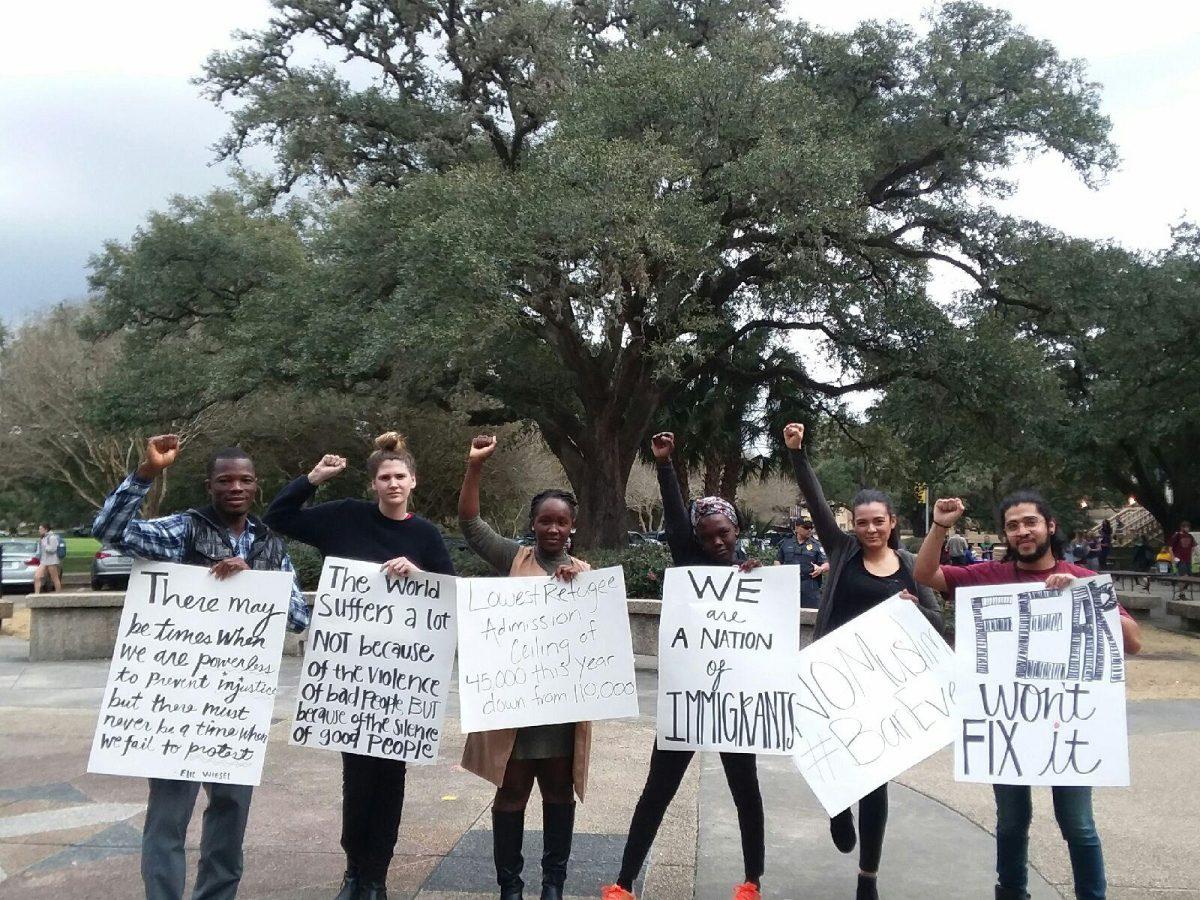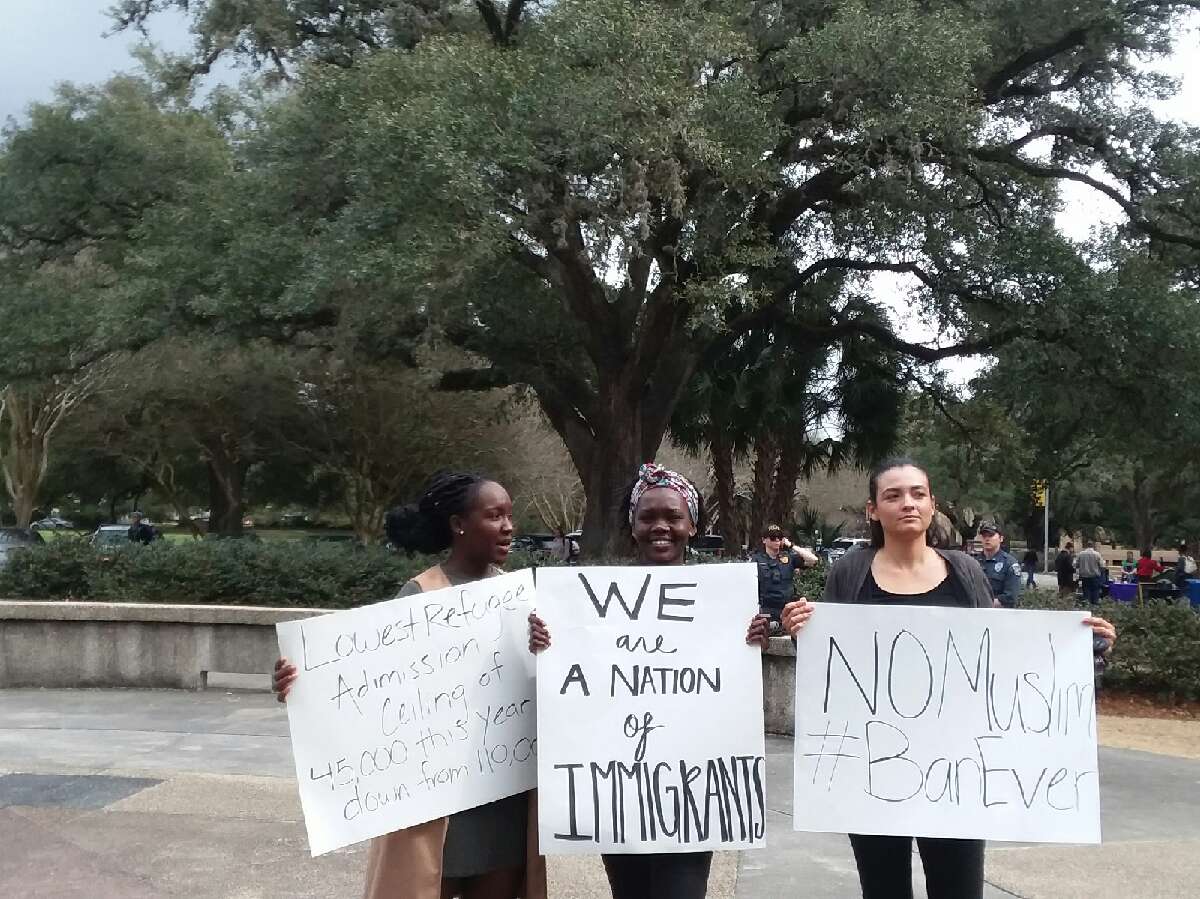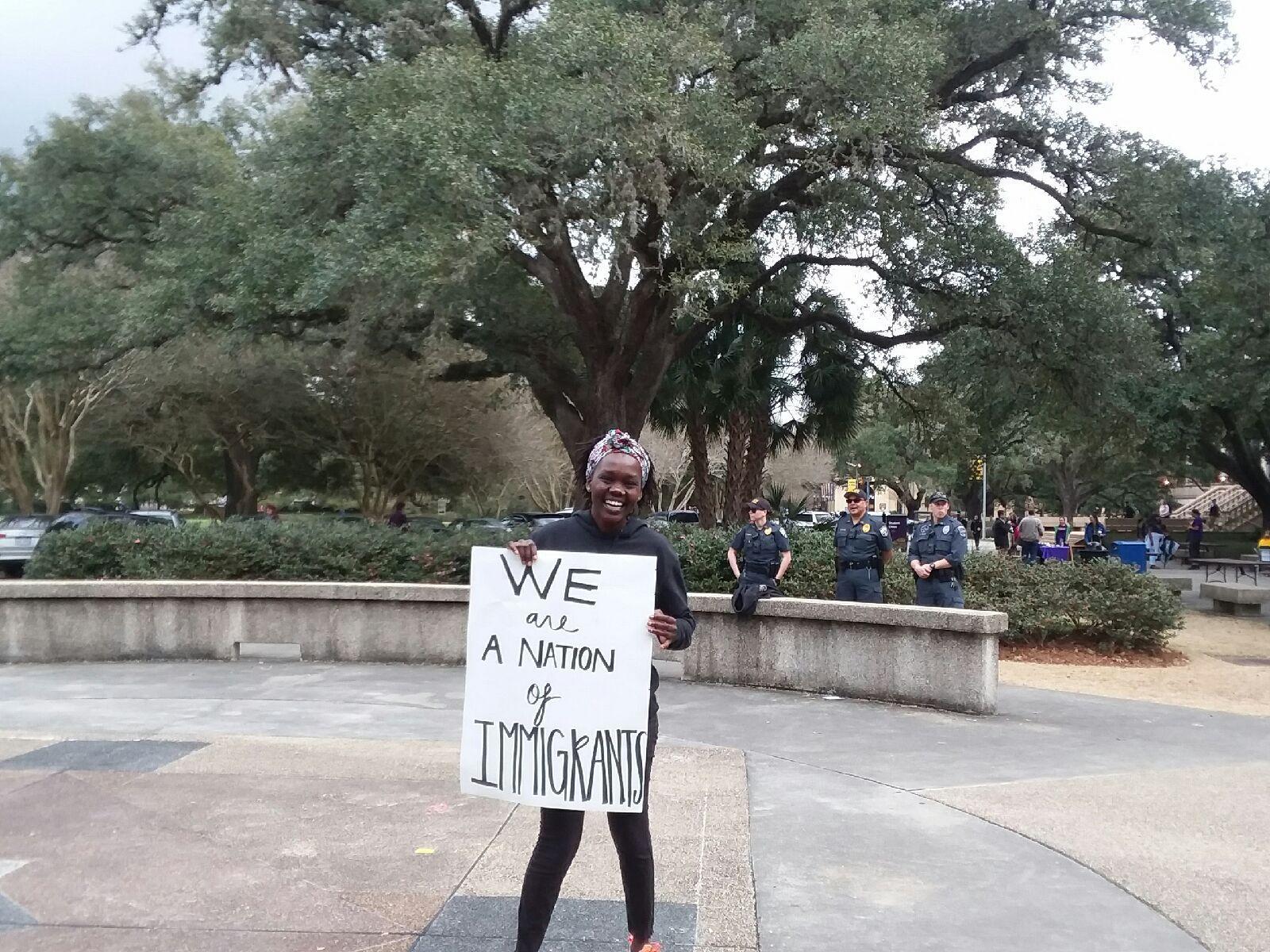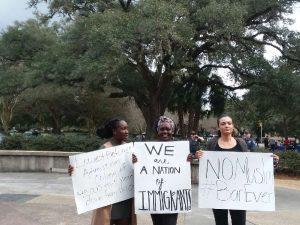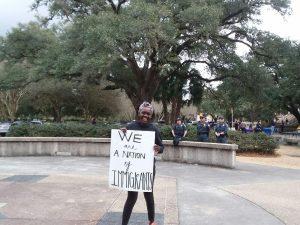Rain did not stop University students from gathering again to protest one year after the campus travel ban walkout in 2017.
Protesters sought to raise awareness for the those hurt by the ban, as well as remind everyone that the ban is still in existence.
“It seems that people have quieted down since the ban was put into place or a little after and no one says anything about it, but the fear is still there,” said Doreen Louis-Ayo, an international studies major at the University of New Orleans. “So this is just to say that it’s still in place and to stand in solidarity with others.”
The ban, which went into effect on Jan. 27, 2017, prohibits immigrants from seven Muslim-majority countries: Iran, Iraq, Libya, Somalia, Sudan, Syria and Yemen. Citizens from these countries, along with North Koreans and some Venezuelans, face heightened travel restrictions, and in some cases are banned completely from U.S. entry. A final ruling on whether the ban is in violation of the U.S. Constitution is projected for June, but the ban remains in effect until then.
“I’m a former refugee. The ban that was administered last year around this very time, on the 27th of January, is still in place and it’s affecting all immigrants, especially refugees,” Louis-Ayo said. “The fear has kinda settled into every one, all immigrants to be exact. And so we’re doing this to advocate that the ban is in place, to advocate that there are immigrants in this school, in the community, that do need solidarity.”
Significantly smaller than the 2017 walkout, a group of protesters from different organizations huddled together in front of the LSU Student Union. They projected around 30 protesters at the peak of the rally, which lasted from around 11:30 a.m. to 12:30 p.m., but the crowd dwindled down to seven by noon. Despite their low numbers, they remained passionate about their cause, which was personal for many of them.
Other protesters focused more other immigration issues such as the uncertain future of DACA, and the 800,000 immigrants who could face the threat of deportation when it expires in March. Graduate student Ann Agbiak said she believes the undocumented dreamers should be allowed to stay.
“They are coming here to seek opportunities, to seek safety, and that’s a basic human need,” Agbiak said. “They’re leaving everything behind…and coming to these countries without anything but hope. That’s what we’re trying to let people know, that these people are not criminals. Refugees are not criminals. They’re just regular human beings that want to start a life and have safety for their families.”
Others were more critical of the political system in general, citing a deep distrust of government workings and advocating for a complete revolution. Anthropology senior Nat Kramm said she identifies with the protesters, but for different reasons.
“The reason I came out is basically because I can see that this is a continuation of a problem that America’s always had,” Kramm said. “It hasn’t started with [President Donald] Trump, and it won’t end with Trump. [Former president Barack] Obama deported more immigrants than any other president before him. It’s not about Trump being the cause of all of this. He’s just a symptom of the disease, which is capitalism. The only way to cure that is through mass revolution.”


